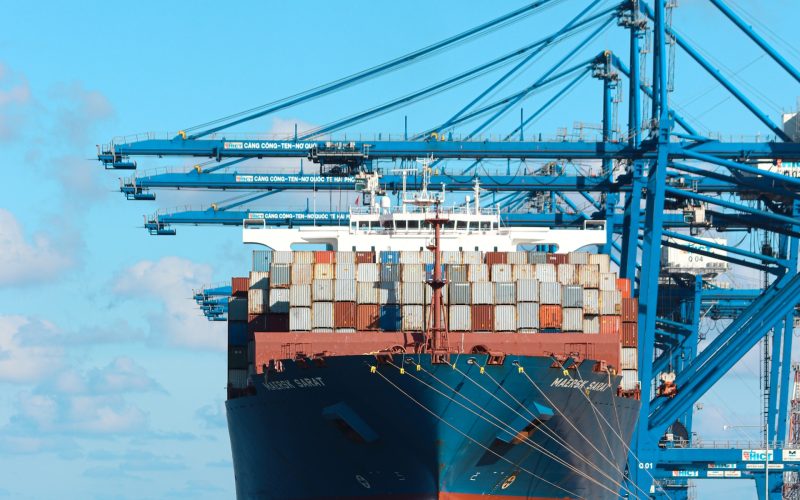The landscape of export controls is undergoing various shifts, especially with rapid technological advancements. Traditional methods of monitoring and regulating the export of goods are proving insufficient in the face of evolving threats.
This is where Artificial Intelligence (AI) comes in. AI is a game-changer that promises to revolutionize how nations safeguard their Export Controls Enforcement. Let’s learn more about the relationship between AI and export controls in this article.
The Current State of Export Controls
Understanding the current challenges and limitations of existing export control systems is crucial. Traditional methods rely heavily on static lists and predefined criteria. This makes exporters struggle to keep pace with the ever-changing nature of emerging technologies.
Here are some key challenges in the current state of export controls:
- Rapid Technological Advancements: Traditional export control systems are often not agile enough to keep up with the pace of technological innovation. This lag can lead to significant gaps in controls. Existing regulations may not adequately cover emerging technologies.
- Static and Rigid Lists: Most export control systems rely on static lists of controlled items. These lists can quickly become outdated as new technologies emerge that don’t fit neatly into existing categories.
- Compliance and Enforcement Difficulties: Ensuring compliance with export control regulations is challenging. This is especially true for smaller businesses that may lack the resources to fully understand and implement these controls. Enforcement may also be difficult due to the sheer volume of international trade.
- Cybersecurity Threats: The increasing role of digital technologies in trade adds a layer of complexity. Cybersecurity threats can undermine the integrity of export control systems.
The Role of Artificial Intelligence in Export Controls
Artificial Intelligence (AI) plays a multifaceted role in export controls. Here are several key roles AI plays in this context:
Risk Assessment and Management
AI can analyze vast amounts of data to identify potential risks associated with exporting certain goods or technologies. This includes identifying end-users who might misuse exported items for harmful purposes.
For example, frequent changes in shipping destinations, irregular transaction sizes, or unusual communication patterns with certain entities can be red flags.
Compliance Monitoring
AI systems can monitor transactions and communications to ensure compliance with export control regulations. They can flag suspicious activities or inconsistencies that might indicate a violation of export laws.
AI can also continuously monitor and analyze transaction data across various platforms. This includes scrutinizing export licenses, shipping documents, and financial transactions to ensure they comply with relevant export regulations.
Automated Classification of Goods
AI is also revolutionizing export controls by automating the classification of goods and technologies. This process involves categorizing items according to relevant export control lists. Without AI, the classification of goods can be a complex task due to these items’ intricate and technical nature.
Real-Time Analytics for Decision Making
AI can provide real-time analytics and insights to policymakers and businesses. This helps businesses make informed decisions about export controls. Examples of these informed decisions include adjusting policies in response to emerging threats or technological advancements.
Predictive Analysis
AI can forecast trends and potential future scenarios in global trade. It helps governments and companies anticipate changes in export control requirements and adapt accordingly. Since AI can learn from various data sources, it enhances AI’s ability to classify goods, even as new technologies emerge.
Enhancing Interagency and International Collaboration
AI can facilitate better communication and data sharing among agencies within and between countries. Thus, it can help improve the effectiveness of export controls at the international level.
For instance, AI-powered language translation enables better communication between countries with different primary languages. This is particularly important in international collaboration, where language barriers can impede effective communication.
Training and Simulation
AI can be used to train personnel in export control compliance through simulations. It can create realistic and interactive simulations for training personnel. These simulations can replicate various scenarios that an individual might encounter in export control. Scenarios may include identifying potential transaction red flags, classifying goods accurately, or handling complicated licensing processes.
Supply Chain Security
AI can analyze and secure supply chains, ensuring controlled items aren’t diverted to unauthorized users or uses. For instance, AI systems can track the movement of goods through the supply chain in real time.
This includes monitoring shipments from origin to destination and tracking their locations and conditions. AI can analyze data from various sources like GPS, RFID tags, and other tracking technologies to provide a comprehensive view of the supply chain.
The Bottom Line
AI has great potential to improve export control compliance and strengthen global security. We’ve talked about how AI can automate various tasks related to export control regulations and secure supply chains. These capabilities can help governments and businesses ensure goods are exported legally and safely. With AI, export control compliance can be more accurate, efficient, and thorough.









